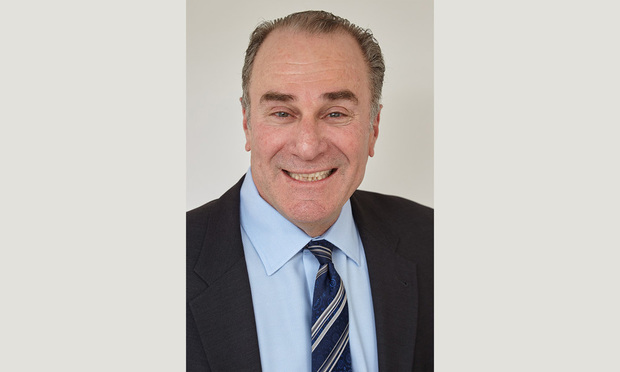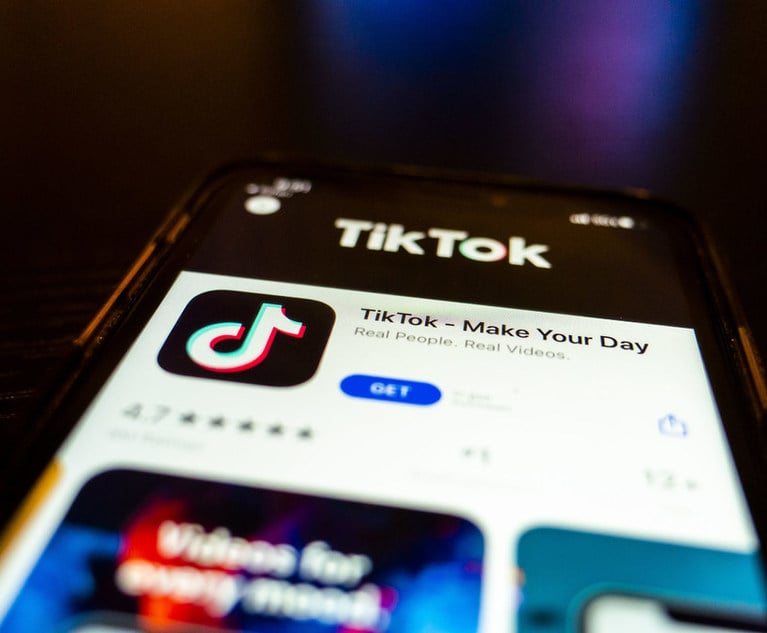Law as Big Business: State Bar Proposal Would Seriously Hurt Consumers
In June, the California State Bar proposed modifying existing ethics rules to enable nonlawyers to give legal advice and to allow insurance companies, hedge funds and other businesses to invest in law firms.
September 18, 2019 at 01:16 PM
5 minute read
 Gerald Sauer, Sauer & Wagner (Photo: Courtesy photo)
Gerald Sauer, Sauer & Wagner (Photo: Courtesy photo)In June, the California State Bar proposed modifying existing ethics rules to enable nonlawyers to give legal advice and to allow insurance companies, hedge funds and other businesses to invest in law firms. The purported reason for this dramatic change is to "improve access to justice" and to allow "technology-driven delivery systems to engage in authorized practice of law activities." It's unfortunate that the state bar doesn't see that it is being used as a shill by big business for an ulterior motive—corporate greed.
We should all be alarmed and dismayed. Access to justice is important, and barriers to access should be removed, but this isn't the way to do it. The California Bar reports that 71% of indigents nationwide have a legal problem, but financial barriers to getting legal advice can be insurmountable. Clearly this is a problem that needs to be fixed. but the proposed ethics rules, designed to protect the public's interest, are not the solution.
The public comment period for this new proposal ends Sept. 23, but—given that the bombshell dropped in the middle of vacation season—there's been hardly time to digest what it portends for the legal profession and the public. California isn't acting in a vacuum. Other states including Utah, Arizona and Illinois are considering similar changes to the delivery of legal services. Is this a mere coincidence, or is there a coordinated effort by lobbyists and others to bring about this monumental change to the legal profession?
At an informational session convened by the Los Angeles County Bar Association on Aug. 27, representatives of the state bar's task force, with perfectly straight faces, stated that the proposed rules would improve public access to justice. Don't buy it. There is absolutely no public benefit to pulling the plug on legal ethics, fiduciary duty and sound legal principles so that nonattorneys can practice law and have an ownership interest in a law firm. The ethics rules changes have nothing to do with access to justice for the indigent and other vulnerable populations.
Let's be clear: This isn't about access to justice, it's about the almighty dollar. Proponents of nonlawyer legal practice include big companies, such as Legal Zoom, whose AI programs churn out cookie-cutter solutions that bear no resemblance to thoughtful, individualized legal advice tailored to a client's unique needs and concerns. A standardized questionnaire cannot parse the nuances of wills versus trusts, nor can it provide professional liability coverage when a client is harmed by the wrong choice.
As for nonlawyer ownership of law firms, where is the nexus to greater access to justice? When hedge funds and insurance carriers have a piece of the legal market, just the opposite will result. Think of Amazon's acquisition of Whole Foods, a business decision driven by profits. Legal services will change to maximize profits, leading to consolidation of firms and focus on the bottom line. Costs will not drop; they'll increase dramatically over time. Insurance companies will establish their own firms, with attorneys beholden to them for their work. The consumer will not benefit.
During the Los Angeles informational session, a colleague put it plainly: "AI can't do the interactive practice that's required as part of a lawyer's standard of care. What of the moral character aspect of the application? Will AI respect the law?" He and others questioned whether nonlawyer organizations would be subject to the same ethical standards applied to lawyers. "Will they be seen as representatives of the legal system?"
Yes, greater access to justice is needed—more now than ever—but this hairbrained scheme is not the answer. The inability of state bar associations to look at realistic solutions that would improve access to justice is astonishing. For instance, why not require every single attorney, including those who bill large corporations hundreds of dollars an hour, to provide free legal services—an annual number of pro bono hours—as a condition for keeping a license to practice law? States already require attorneys, as a license condition, to spend a specified number of hours annually meeting continuing education requirements. Why not include hours devoted to providing services for the indigent?
Don't lower standards and open the floodgates to unscrupulous, untrained and profit-driven enterprises. Consumers will suffer, as will the entire legal profession. The privilege of being licensed to practice law includes ethical obligations that are designed to protect the public's interest, and we must do everything in our power to keep it that way.
Gerald Sauer, founding partner at Sauer & Wagner in Los Angeles, is a veteran civil trial attorney who concentrates his practice on business, employment and intellectual property law.
This content has been archived. It is available through our partners, LexisNexis® and Bloomberg Law.
To view this content, please continue to their sites.
Not a Lexis Subscriber?
Subscribe Now
Not a Bloomberg Law Subscriber?
Subscribe Now
NOT FOR REPRINT
© 2025 ALM Global, LLC, All Rights Reserved. Request academic re-use from www.copyright.com. All other uses, submit a request to [email protected]. For more information visit Asset & Logo Licensing.
You Might Like
View All
Build It and They Will Come: Tips to Market Your Practice as a Junior Attorney
6 minute read
Yelp Sues Google for Alleged Antitrust Violations, Citing Previous 'Watershed' Government Ruling

There's Something in the Water: San Diego Is Once Again a Hot Market for National Law Firms
6 minute read
What Happens When You Go Viral? How a Law Firm Associate Manages Her Social Media Success
5 minute readTrending Stories
- 1Rejuvenation of a Sharp Employer Non-Compete Tool: Delaware Supreme Court Reinvigorates the Employee Choice Doctrine
- 2Mastering Litigation in New York’s Commercial Division Part V, Leave It to the Experts: Expert Discovery in the New York Commercial Division
- 3GOP-Led SEC Tightens Control Over Enforcement Investigations, Lawyers Say
- 4Transgender Care Fight Targets More Adults as Georgia, Other States Weigh Laws
- 5Roundup Special Master's Report Recommends Lead Counsel Get $0 in Common Benefit Fees
Who Got The Work
J. Brugh Lower of Gibbons has entered an appearance for industrial equipment supplier Devco Corporation in a pending trademark infringement lawsuit. The suit, accusing the defendant of selling knock-off Graco products, was filed Dec. 18 in New Jersey District Court by Rivkin Radler on behalf of Graco Inc. and Graco Minnesota. The case, assigned to U.S. District Judge Zahid N. Quraishi, is 3:24-cv-11294, Graco Inc. et al v. Devco Corporation.
Who Got The Work
Rebecca Maller-Stein and Kent A. Yalowitz of Arnold & Porter Kaye Scholer have entered their appearances for Hanaco Venture Capital and its executives, Lior Prosor and David Frankel, in a pending securities lawsuit. The action, filed on Dec. 24 in New York Southern District Court by Zell, Aron & Co. on behalf of Goldeneye Advisors, accuses the defendants of negligently and fraudulently managing the plaintiff's $1 million investment. The case, assigned to U.S. District Judge Vernon S. Broderick, is 1:24-cv-09918, Goldeneye Advisors, LLC v. Hanaco Venture Capital, Ltd. et al.
Who Got The Work
Attorneys from A&O Shearman has stepped in as defense counsel for Toronto-Dominion Bank and other defendants in a pending securities class action. The suit, filed Dec. 11 in New York Southern District Court by Bleichmar Fonti & Auld, accuses the defendants of concealing the bank's 'pervasive' deficiencies in regards to its compliance with the Bank Secrecy Act and the quality of its anti-money laundering controls. The case, assigned to U.S. District Judge Arun Subramanian, is 1:24-cv-09445, Gonzalez v. The Toronto-Dominion Bank et al.
Who Got The Work
Crown Castle International, a Pennsylvania company providing shared communications infrastructure, has turned to Luke D. Wolf of Gordon Rees Scully Mansukhani to fend off a pending breach-of-contract lawsuit. The court action, filed Nov. 25 in Michigan Eastern District Court by Hooper Hathaway PC on behalf of The Town Residences LLC, accuses Crown Castle of failing to transfer approximately $30,000 in utility payments from T-Mobile in breach of a roof-top lease and assignment agreement. The case, assigned to U.S. District Judge Susan K. Declercq, is 2:24-cv-13131, The Town Residences LLC v. T-Mobile US, Inc. et al.
Who Got The Work
Wilfred P. Coronato and Daniel M. Schwartz of McCarter & English have stepped in as defense counsel to Electrolux Home Products Inc. in a pending product liability lawsuit. The court action, filed Nov. 26 in New York Eastern District Court by Poulos Lopiccolo PC and Nagel Rice LLP on behalf of David Stern, alleges that the defendant's refrigerators’ drawers and shelving repeatedly break and fall apart within months after purchase. The case, assigned to U.S. District Judge Joan M. Azrack, is 2:24-cv-08204, Stern v. Electrolux Home Products, Inc.
Featured Firms
Law Offices of Gary Martin Hays & Associates, P.C.
(470) 294-1674
Law Offices of Mark E. Salomone
(857) 444-6468
Smith & Hassler
(713) 739-1250






